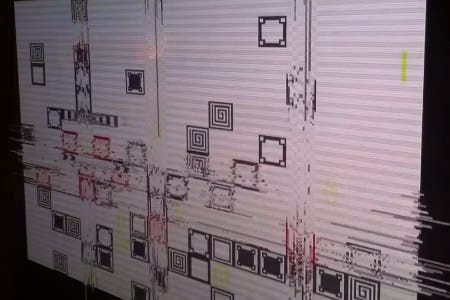Two years with Vlambeer: the inside story on gaming's greatest new studio
The indie developers behind Super Crate Box have enjoyed an astronomical rise. Here's their tale.
The typical game development studio will get about halfway through a game in two years. They'd be just about at the stage of a working build, burgeoning with bugs and still riddled with placeholder art. Two years is a lot of time, and getting that far is a lot of work.
Vlambeer has released twelve games in two years, and before 2012 is done, there'll probably be another pair added to the mix. For an indie studio, that's all kinds of prolific - not to mention a little bit insane. But then if you look at the likes of Super Crate Box, Radical Fishing and Serious Sam: The Random Encounter, 'insane' seems fairly accurate.
"Gorillas." Rami Ismail, one half of Vlambeer, starts his own story. "It's two gorillas throwing explosive bananas at one another," he elaborates. "At some point I got interested in what all those characters on my screen were before the game started, so I changed stuff and that changed the game, which fascinated me." And for all that Vlambeer has done to sidestep conventions and tread its own path, it's tinkering that defines it most accurately.
"When I was 12 I read in a children's computer magazine about Game Maker, which let anyone make games." Now it's Jan Willem Nijman's turn to share his origins. "So I downloaded it and changed the tutorial so that the car sounded like a cow, and that was my first game, pretty much. And I kept doing that for the rest of my life." Which makes it especially interesting when, by the time the two met, they were on very different paths, albeit within the same field.
"Whenever I saw anything Jan made I always thought it was a bit shit. It was 2D, it was simple, and it always looked like a rush job." - Rami Ismail
"I was coming out of the type of indie development where you work on a game for a year or two and then commercially release it," says Ismail. "And Jan was coming from working on a game for a few hours and then giving it away."
"We were on the train to college one morning and I was talking to some friends about the space sim I was working on, and at the other end of the train there was this sort of hooded character sitting there." Both Ismail and Nijman were attending the same game design college in the Netherlands, both being funneled into the bosom of AAA development. Four years ago, there wasn't much of a Dutch indie scene.
"It was 8am or something," Ismail continues. "And the hooded guy looks up and says 'Could you please shut the f*** up?' That was Jan, and I kind of hated the guy. Whenever I saw anything Jan made I always thought it was a bit s***. It was 2D, it was simple, and it always looked like a rush job." And there's a fair reason for that; they were all those things.
While Ismail was breaking away from their game design college in the direction of 'commercial' independent development, where you craft something that at least superficially competes with the AAA developers, Nijman had become part of the Poppenkast, a collective of seminal European one-man developers who could toss out multiple games in a single day.
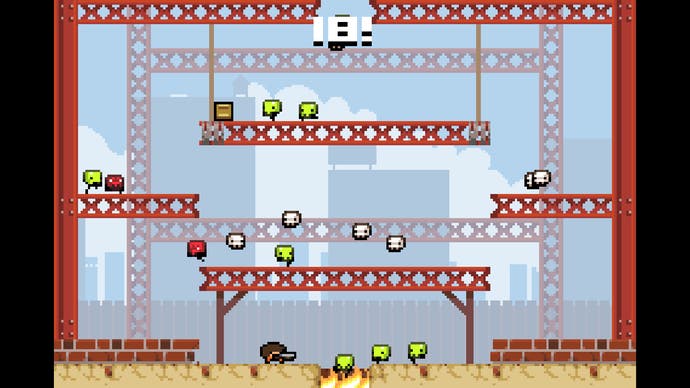
"That's probably where I started to learn how to make games. There are a lot of three-hour game jams, and no one ever finished anything." Nijman was in good company, too; the likes of Messhof (Nidhogg, Pipedreamz & Turbo Turbo Turbo) and Cactus (Hotline Miami, Norrland & Hot Throttle) both ascended through the community, and while it's sadly defunct now, its legacy of quick iteration and execution is thriving in the form of game jams worldwide.
Regardless, they somehow ended up in the same disillusioned funk at the same time in the same place, and naturally gravitated towards one another. "I had done some flash games for money, and realised I could actually make money from games. And Rami could help me polish one and release it so that we could have more than 50 people play it. So we decided to release Super Crate Box for free and then apply it to the IGF."
The only problem with that kind of plan is that it ends up with you being poor. So they needed a contingency. "We ate noodles for a few months and worked on Radical Fishing to release as a flash game to tide us over while we finished Super Crate Box."
If you don't know much about Vlambeer, you won't know that Super Crate Box was a pretty massive success for the studio, or that it was nominated for the IGF as a finalist, losing out in the Excellence in Design category to Desktop Dungeons. But it put Vlambeer on a level with Nidhogg and Minecraft, which is more than enough in terms of validation for a startup company.
Radical Fishing kept them off the streets, and Super Crate Box meant people paid attention to what they were doing. With a few more flash games under its belt, Vlambeer found itself at the Global Game Jam in early 2011, faced with the concept of 'Extinction'.
Only Ismail and Nijman didn't make a game where you're a dinosaur desperately trying to evolve into a mammal before the meteor hit, or the last dodo evading hungry sailors. Instead they made a game that itself had a lifespan, where every time anyone played it they would invariably make it a little weaker, sapping a little more of the game's health.
It was called Glitchhiker, and it may well be one of the most interesting games that has ever been made.
"It was - and I hate this phrase - but it was a happening." Nijman suddenly sounds a little less animated, and the tone of both men turns sombre. "We were sitting in a bar after the Game Jam." Ismail continues. "And we got a text message from Paul [Veer] saying there were three lives left."
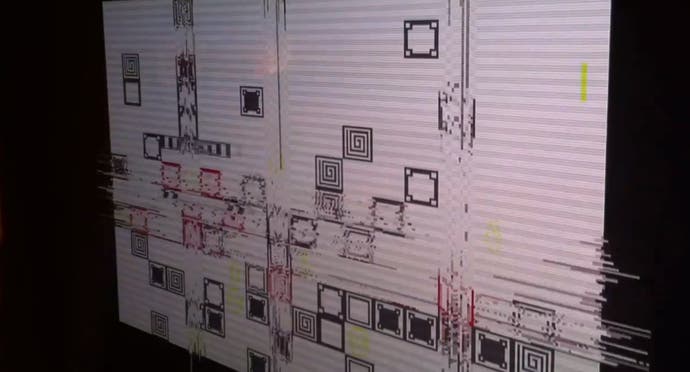
The way Glitchhiker works is that each time you start up the game, you take a life from the pool. You play the game, and collect coins, and if you get enough coins you put a life back into the pool. Do even better, and you can even add a life. Needless to say, most players were detrimental to the game's health.
"So we refreshed the page and it was down to one life," Nijman continues. "And then we refreshed again and it was up to two. Then we refreshed once more and it was down to zero." And that was that. "The phone started erroring out because that's what we'd programmed it to do when Glitchhiker died," says Ismail. "And it really did feel like it had died."
Vlambeer, along with a few other indie dev friends, had made a game, and now it had died. They had players refuse to play because they were too afraid of hurting the game, and others acting like nurses in an ER desperately keeping it alive.
"There was one guy who was super good, and he was trying to keep it alive. He was getting tens of lives for the game, and it was when he was on the train home that the game died." Vlambeer had created a one-off event, a game that now lives in infamy among anyone trying their hand at making a game in such a short period of time.
This sidestepping of expectation runs through all of Vlambeer's games. Super Crate Box is an action platformer where the aim of the game isn't to kill the enemies but instead collect as many weapons as possible from the eponymous crates. Yeti Hunter, their first person claustrophobic stalker, plays tricks with you, making you never quite sure if you actually nabbed the yeti, or even saw one. The Random Encounter is a turn based JRPG, but also very much not that.
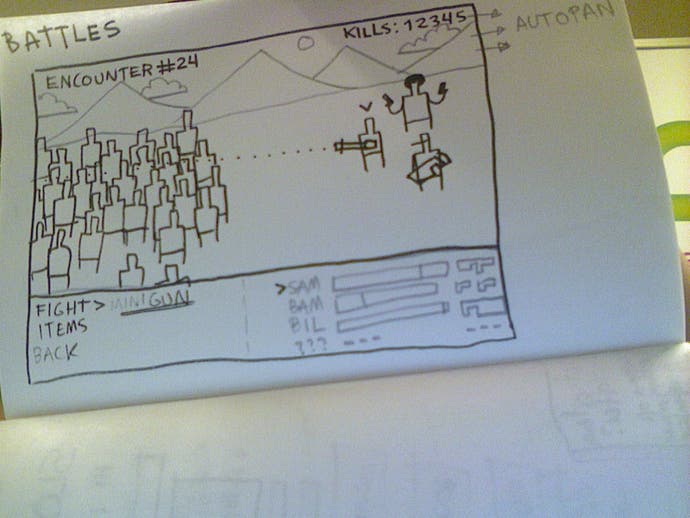
In fact, Serious Sam: The Random Encounter was insane from its conception.
"Devolver [Digital] came to us and said they liked what we'd done with Super Crate Box, and they wanted us to do a Serious Sam spin off game. So we were sitting there thinking 'F**k. They just want Super Crate Box in a Serious Sam skin. F**k that.'"
Nijman continues. "We went to a restaurant and decided to come up with a pitch that was just about the most ridiculous thing we could think of that would be just about doable." Both Nijman and Ismail sound amused looking back on it, like they were punk rockers screwing with a label. "We actually wanted them to say no," Rami states, as if that would have proved everything they ever thought about game publishers.
"We almost immediately got an email back saying yes," Nijman laughs. "Which meant on the one hand we knew these guys were probably pretty cool, and on the other we had to make a turn-based RPG out of Serious Sam." They'd just played chicken with a publisher, scanning in a crude drawing and emailing it off like it was a proper pitch. Only Devolver hadn't blinked, and now Vlambeer had to actually follow through.
"All my time went into doing interviews, doing talks and generally managing the situation. My full time job became telling people we got f**ked over." - Rami Ismail
Which would probably have been absolutely fine, except, well… Ismail says it best. "Then shit happened. A lot of it. All at once." A game called Ninja Fishing had started its marketing campaign, and it was looking a lot like Radical Fishing, the game that had first floated Vlambeer back in 2010. More than that, Ismail and Nijman were working on their own iOS version of the game, and Ninja Fishing was headed for the App Store.
'Looking a lot like' is a bit of an understatement. It was an outright clone, taking every single concept, from the smallest detail to the biggest idea, and claiming it for their own. "We asked them to change the theme and they said no." Ismail sounds exhausted just talking about it. "Then we asked them to delay the release of the game until we got Ridiculous Fishing out, and they offered us money instead."
When your studio is just two people it's hard to deal with your idea being stolen, but even more than that it's hard to deal with the media fallout when it happens. "The clone hit and all my time went into doing interviews, doing talks and generally managing the situation. My full time job became telling people we got f**ked over."
They could well have just ignored it, focused on getting The Random Encounter and Ridiculous Fishing done and then just hoped people wouldn't accuse them of cloning Ninja Fishing, but instead they decided to fight it, becoming very public with their opposition of both the practice and this specific game.
"If you look at the industry now and how they deal with clones, it is different. I like to think my efforts weren't in vain. Doing all those interviews, and nearly killing ourselves doing it. A lot of the arguments for cloning are very defensive, like saying cloning is part of the industry. That's just not true. Iteration is part of the industry, and it's our industry; it can be what we want it to be." Ismail even jokingly claims credit for EA suing Zynga over Cityville.
Through all of this, even though Vlambeer found itself on the bad side of a lot of situations, it's still come out of it one of the most prolific studios in existence today. More than that it's putting out games that aren't just interesting and inventive, but polished, too, in their own way. "We try to mess things up and do things that are new. We don't want to do games that have been done already."
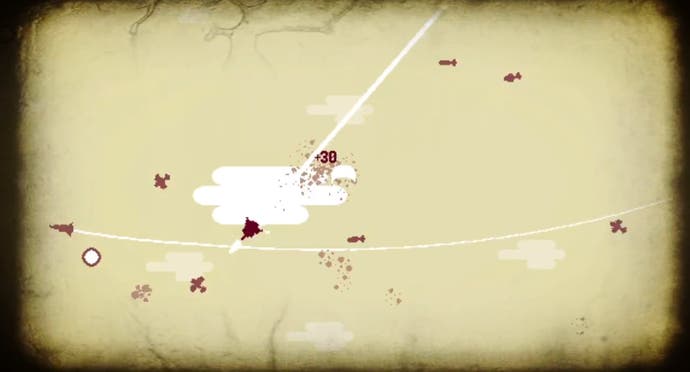
Which explains a lot of the thought behind the 7 Day FPS on Nijman's side, and Ismail's upcoming F**k This Jam. Both are game jams that focus on forcing independent developers out of their comfort zones, confronting them with genres they either hate or have no interest in. The idea being that they want people who have no love for a genre to breath new life into it, or at the very least bring a new perspective.
In the case of 7 Day FPS, the post child has been Receiver, by Wolfire Games, which puts you in a procedurally generated apartment complex with the most lovingly recreated gun mechanics I've ever seen. Not just in how they fire, but in how you have to load each bullet individually into a magazine before slotting it into the pistol, and pulling back the slide. It's a completely new feel to the gun, that focus of so many games, but almost a throwaway mechanic in the vast majority of them. New life, and a new perspective.
And when you really get down to it, that's Vlambeer, both in what it's done in the past and what it's doing now. It's an independent studio that is actively thrusting itself into the unknown, rather than languishing in the familiar. Every one of their games has explored a new genre, and occasionally a brand new idea for games in general.
"Our very first game was an IGF nominated title, and there's plenty of studios that do nothing after that." Ismail might have sounded a little more nervous about this a few months ago, but now the two are sitting on Luftrausers, a 2D arcade flight sim that is looking all kinds of excellent. "We don't want to be one of them. We're still pushing and we're still having fun."
